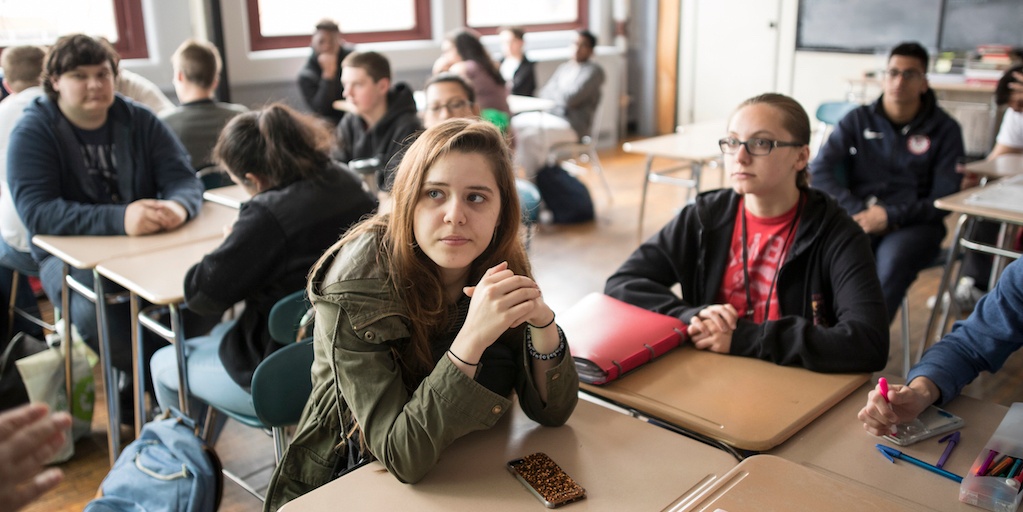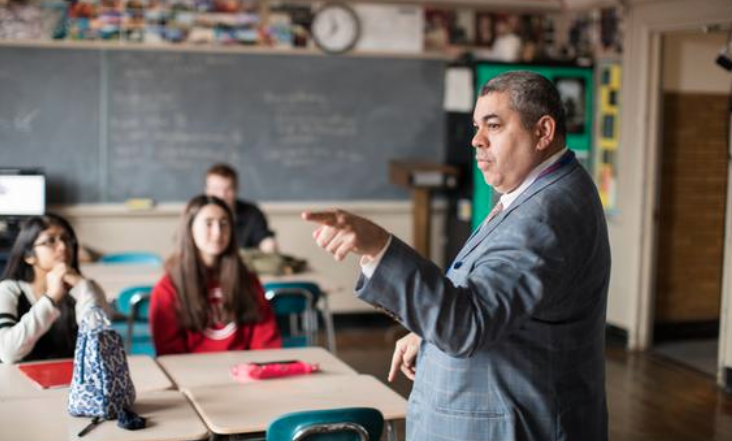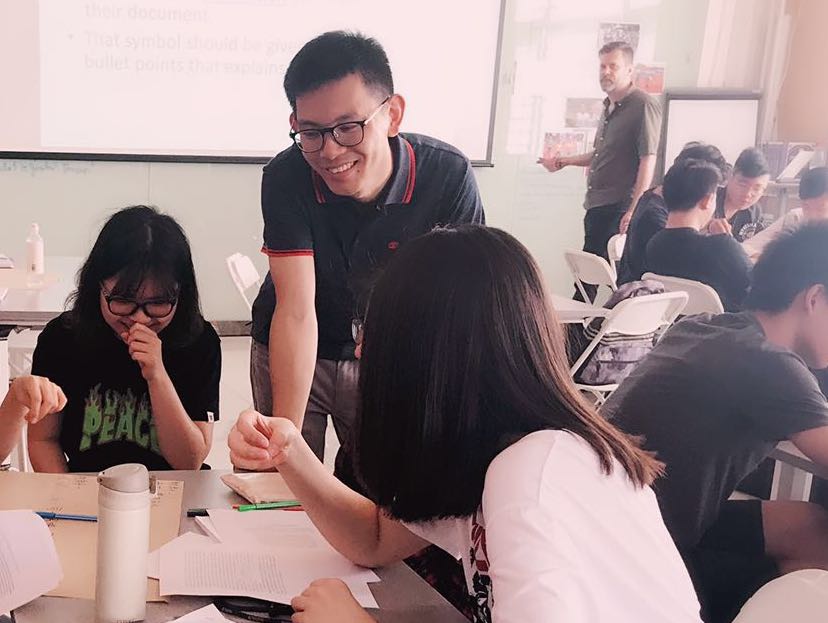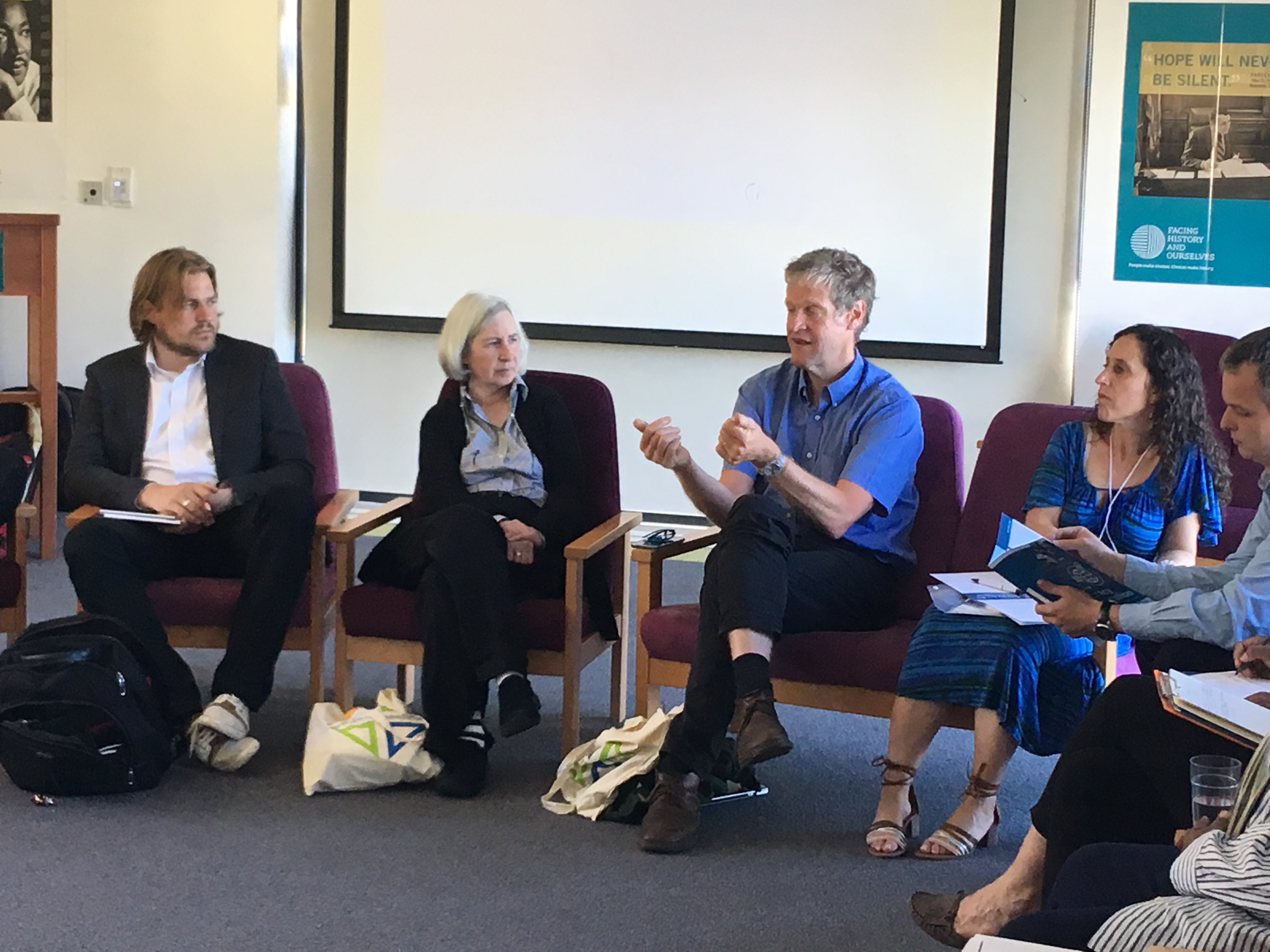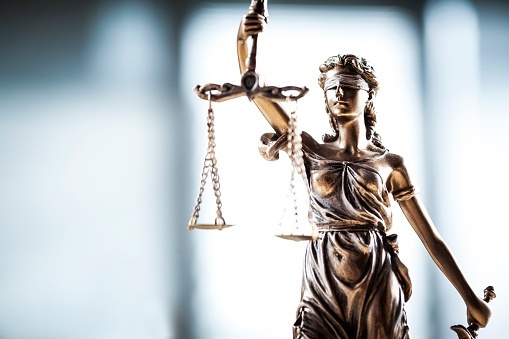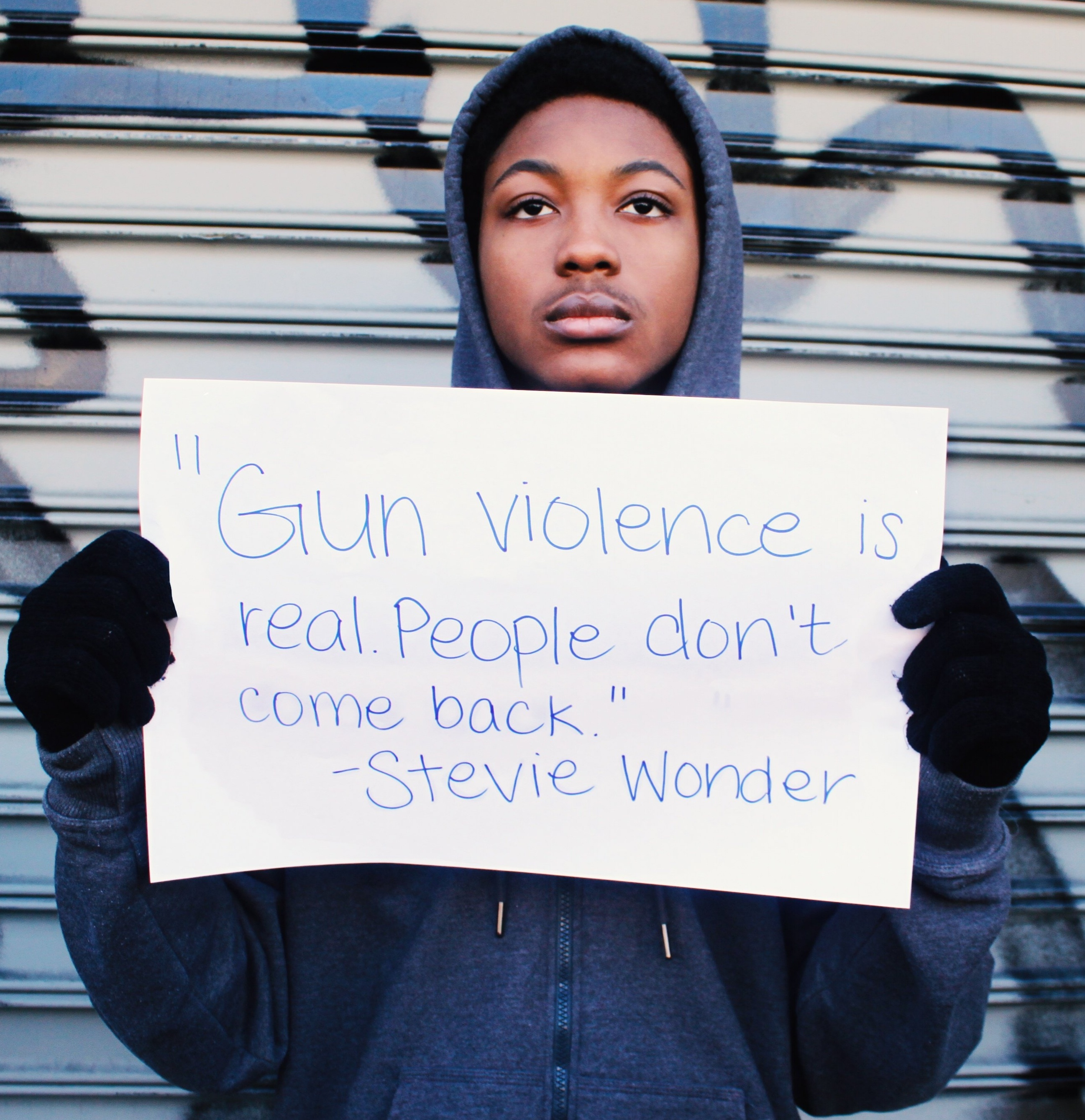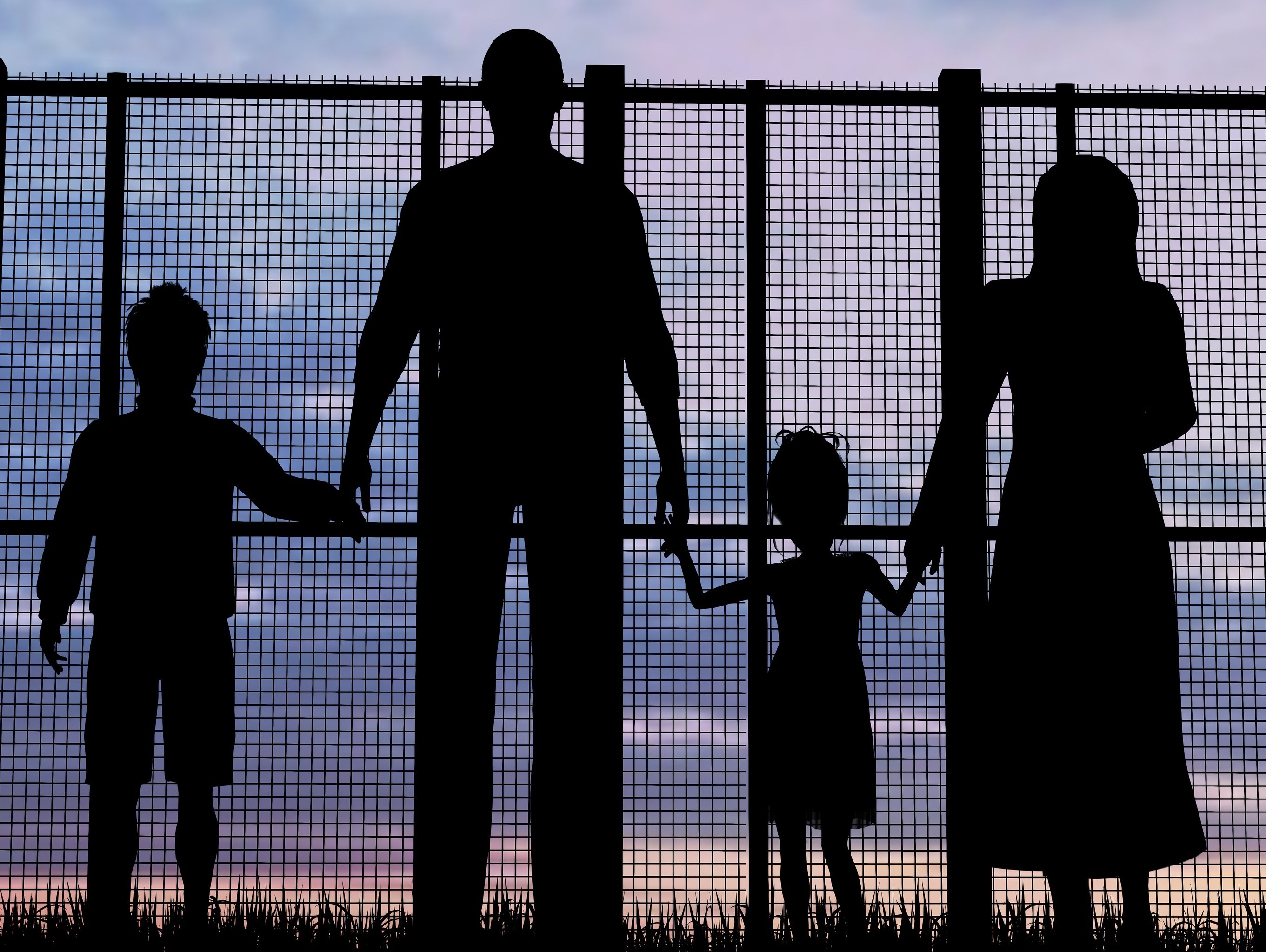During Shabbat morning services last Saturday, eleven people were murdered at Pittsburgh’s Tree of Life Synagogue by a gunman who shouted “All Jews must die” as he opened fire. The gunman is in custody and the FBI is investigating the killings as a hate crime. As we wrote immediately upon hearing the news yesterday, we are heartsick at these antisemitic murders.
The upcoming midterm elections. The Kavanaugh hearings. Colin Kaepernick and Take A Knee. The Rohingya crisis. It’s a tumultuous time in the world—and that complexity will likely remain for years to come. How do you take on the task of explaining these issues? In what way should you tackle current events in the classroom? How do you convey thorny global concepts while respecting diverse points of view and making students feel inspired?
Topics: current events
Facing History and Ourselves offers students the opportunity to confront the histories of antisemitism and genocide so that their decisions today are informed by empathy, compassion, and humanity. We support teachers to inspire students with the help of scholars whose research enters classrooms through our case studies. This matters because students are faced with complex choices about the world they are inheriting and the one they wish to build. And, they need deep knowledge in order to grapple with the realities of bigotry and respond to the challenges facing democracy.
Topics: Holocaust Education
International Spotlight: Here's What Facing History Looks Like in China
Posted by Juan Castellanos on August 24, 2018
With partnerships all over the world, Facing History is a global organization. Learn about what Facing History looks like in China from Rajesh Kripalani and Georgia Barker, two program fellows teaching in Shanghai and Beijing, respectively. Facing History Fellows are Facing History teachers who act as liaisons between the program team and the work being done in other countries and regions such as China. Kripalani is the Teaching And Learning Coach, Head of Social Studies and IB History, Global Politics and Theory of Knowledge Coordinator at Fudan International School. Barker is a social studies teacher at Tsinghua International School.
Topics: International, china
August marks the one year anniversary of the “Unite the Right” rally in Charlottesville, Virginia. Last summer’s events saw demonstrators gathering under symbols- Confederate flags, swastikas, and the Iron Cross, to name a few- that connote hatred, exclusion, and are associated with the persecution of African Americans, Jews, Muslims, and many more marginalized communities. Marchers chanted slogans: “Jews will not replace us,” “White lives matter,” and “Blood and soil.” While the event was steeped in symbolic violence, it concluded in physical violence and the death of an anti-racism activist. To many onlookers across the country and the world, this episode was shocking, frightening, but all too familiar.
During an unusually sunny week in early July, 22 leaders of educational organizations gathered in Northern Ireland for Facing History and Ourselves’ Global Summit on Democracy and Education. We hailed from ten countries spanning most corners of the globe. Some came from places with deep democratic traditions, like Australia and the Netherlands, while others represented newer democracies like South Africa and the Czech Republic, or societies emerging from periods of violent conflict, like Colombia and Northern Ireland itself.
Topics: Democracy
From Arkansas to Boston: Learning Across the Conservative/Liberal Divide
Posted by Cherese Smith on July 9, 2018
Last summer, Catherine Epstein, a Facing History middle school teacher in Boston, Massachusetts, posted a request on Facebook. She was looking for teachers who might be interested in starting a pen pal project with her students. She wanted to give young people the chance to interact with other peers from an entirely different background, with the goal of building empathy. As a teacher in Ozark, Arkansas, a rural, conservative town, I thought my class would offer the right contrast to Catherine’s urban, liberal environment. It was a refreshing idea and the start of a wonderful friendship for the two of us—and our students.
The Supreme Court Ruling on the Muslim Travel Ban Highlights a Complicated Past
Posted by Daniel Osborn on June 27, 2018
On Tuesday, June 26, the US Supreme Court announced its decision to uphold President Trump's travel ban. His 2017 executive order banned travel from eight countries, six with majority-Muslim populations and is often referred to as the “Muslim Travel Ban.” This contemporary moment illustrates the importance of court systems in fostering climates of inclusion or exclusion within a country.
Topics: Democracy
STUDENT VOICES: "The Youth Movement Extends Beyond Gun Violence"
Posted by Suraya Buffong on June 26, 2018
Students are the future. My generation has opinions, a voice and power at our fingertips.
We use social media, political protests and other methods to share our views with our peers and with anyone else who will listen.
We start movements and lead teach-ins. We use technology, our opportunities and our privileges to effect change in society.
The March for Our Lives protest against gun violence galvanized a population of young people to say #Enough and #NeverAgain to gun violence.
But the youth movement extends beyond gun violence.
Topics: Student Voices
At the end of a heart-wrenching week, I want to share my perspective on the ongoing humanitarian crisis unfolding on the southern border of the United States.
As you know, Facing History and Ourselves has devoted our attention and concern to similar debates over immigration, the border, and DACA over the last several years. Yet this latest news compels me to reaffirm one of the most profoundly held values of our organization:
We oppose the dehumanization of any group of people, in any form.
Topics: Immigration

